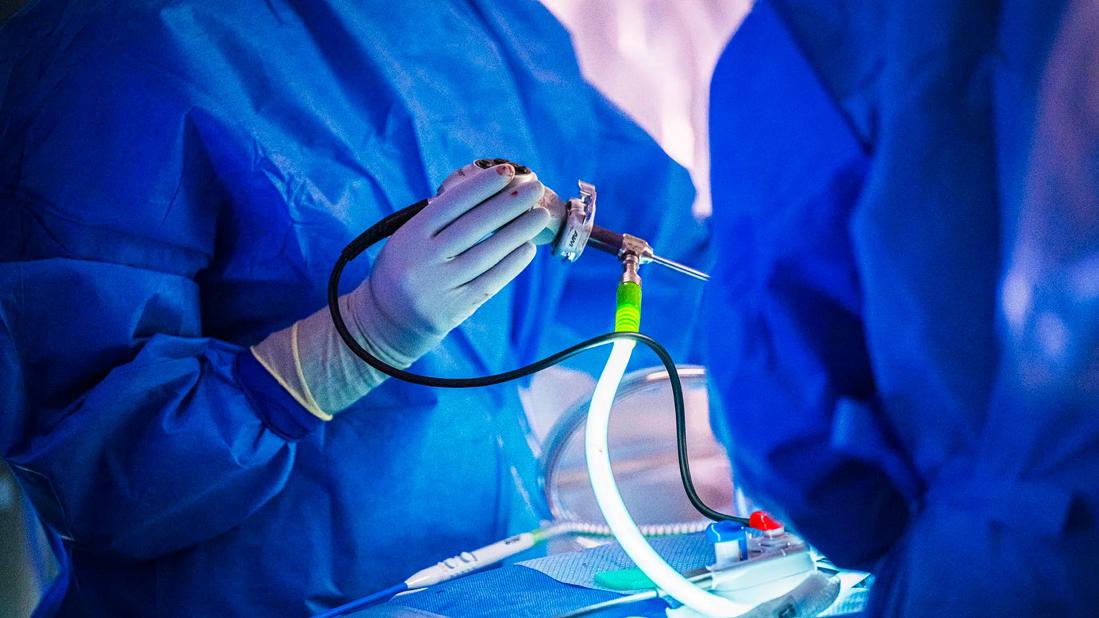Largest series of its kind to date

Reoperative surgery in patients with persistent or relapsed type 2 diabetes mellitus after bariatric surgery can significantly improve glucose control, according to a study presented by Essa Aleassa, MD, at the 16th World Congress of Endoscopic Surgery hosted by SAGES and CAGS this week.
Advertisement
Cleveland Clinic is a non-profit academic medical center. Advertising on our site helps support our mission. We do not endorse non-Cleveland Clinic products or services. Policy
“It is important to emphasize that obesity and diabetes are chronic progressive diseases that may require additional therapy if initial treatment fails,” says Ali Aminian, MD, lead author of the study. “This paradigm is well accepted for many other chronic medical and surgical diseases, such as cardiac disease or joint problems.”
Dr. Aminian and his research team assessed metabolic parameters and clinical outcomes of 81 patients with persistent or relapsed diabetes at the time of revisional bariatric surgery, between 2008 and 2014. The study shows that patients with persistent diabetes who convert from restrictive procedures, such as gastric band or gastroplasty, to diversionary procedures, like gastric bypass, can significantly improve the condition of the disease.
“In medical treatment of diabetes, we usually start with prescribing one drug to control blood sugar,” explains Dr. Aminian. “If that drug fails, the next step would be to combine two or more drugs,” he says. “If this fails to control diabetes, then injectable medication, including insulin, would be added to the drug list.” In short, the therapy is escalated in diabetes, similarly to other chronic diseases, to effectively control the disease.
“We can follow the same concept with surgery,” Dr. Aminian says. “If one surgery fails to improve diabetes, we can escalate the care and convert to another surgery or do a corrective procedure to improve the diabetes.”
The team’s research, the largest series to date, also found that corrective surgery to revise the size of the gastric pouch after gastric bypass will result in a decrease in weight and significantly improved diabetes. The study further indicated that reoperative surgery led to the discontinuation of insulin in the majority of patients who had been using it.
Advertisement
Dr. Aminian notes a small percentage of patients do have persistent hyperglycemia or relapse after initial remission of their diabetes following bariatric surgery. These patients, he says, are usually managed with antidiabetic medications.
“Unfortunately, many patients and physicians do not consider the option of reoperation to improve metabolic outcomes,” says Dr. Aminian. “Furthermore, many insurance providers do not cover reoperative bariatric surgery.”
Dr. Aminian acknowledges, “Further clinical and mechanistic studies are needed to better demonstrate the role of revisional bariatric surgery in patients with residual diabetes.”
Essa Aleassa, MD, Dr. Aminian’s fellow, is the primary author of the study. Other investigators on the team were Philip Schauer, MD, and Stacy Brethauer, MD.
Advertisement
Advertisement

Pheochromocytoma case underscores the value in considering atypical presentations

Advocacy group underscores need for multidisciplinary expertise

A reconcilable divorce

A review of the latest evidence about purported side effects

High-volume surgery center can make a difference

Advancements in equipment and technology drive the use of HCL therapy for pregnant women with T1D

Patients spent less time in the hospital and no tumors were missed

A new study shows that an AI-enabled bundled system of sensors and coaching reduced A1C with fewer medications